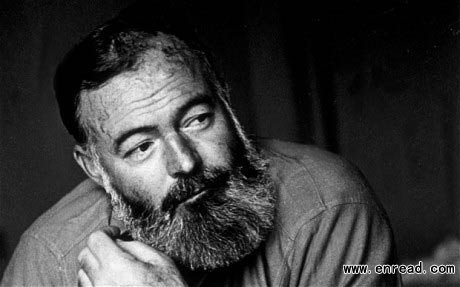Fbi监视可能导致海明威自杀
诺贝尔文学奖获得者欧内斯特·海明威的好友霍奇纳日前在《纽约时报》发表回忆文章称,FBI因怀疑海明威与古巴领导人卡斯特罗有往来而对其进行24小时监视,他们对海明威的窃听和跟踪让海明威焦虑不已并最终导致心理崩溃。

Ernest Hemingway: The FBI had compiled a 127-page file on the Nobel Prize-winning author.
AE Hotchner said he believed the FBI's monitoring of the Nobel Prize-winning author, over suspicions of his links to Cuba, "substantially contributed to his anguish(痛苦) and his suicide" 50 years ago.
Hotchner wrote in The New York Times that he had "regretfully misjudged" his friend's fears of federal investigators, which were dismissed as paranoid(类似妄想狂的) delusions for years after his death.
In 1983 the FBI released a 127-page file it had kept on Hemingway since the 1940s, confirming he was watched by agents working for J. Edgar Hoover, who took a personal interest in his case.
Hotchner described being met off a train by Hemingway in Ketchum, Idaho, in November 1960, for a pheasant(野鸡) shoot with their friend Duke MacMullen.
Hemingway, struggling to complete his last work, complained "the feds" had "tailed us all the way" and that agents were poring over(注视) his accounts in a local bank that they passed on their journey.
"It's the worst hell," Hemingway said. "The goddamnedest hell. They've bugged everything. That's why we're using Duke's car. Mine's bugged. Everything's bugged. Can't use the phone. Mail intercepted."
Later that month he was committed for psychiatric care at the Mayo Clinic in Minnesota, where he received electric shock treatment. He attempted suicide several times before being released.
A few days after returning home to Ketchum, he shot himself in the head with his favourite shotgun aged 61.
"In the years since, I have tried to reconcile(调解) Ernest's fear of the FBI, which I regretfully misjudged, with the reality of the FBI file," wrote Hotchner, the author of 'Papa Hemingway'.
"I now believe he truly sensed the surveillance, and that it substantially contributed to his anguish and his suicide," he said.